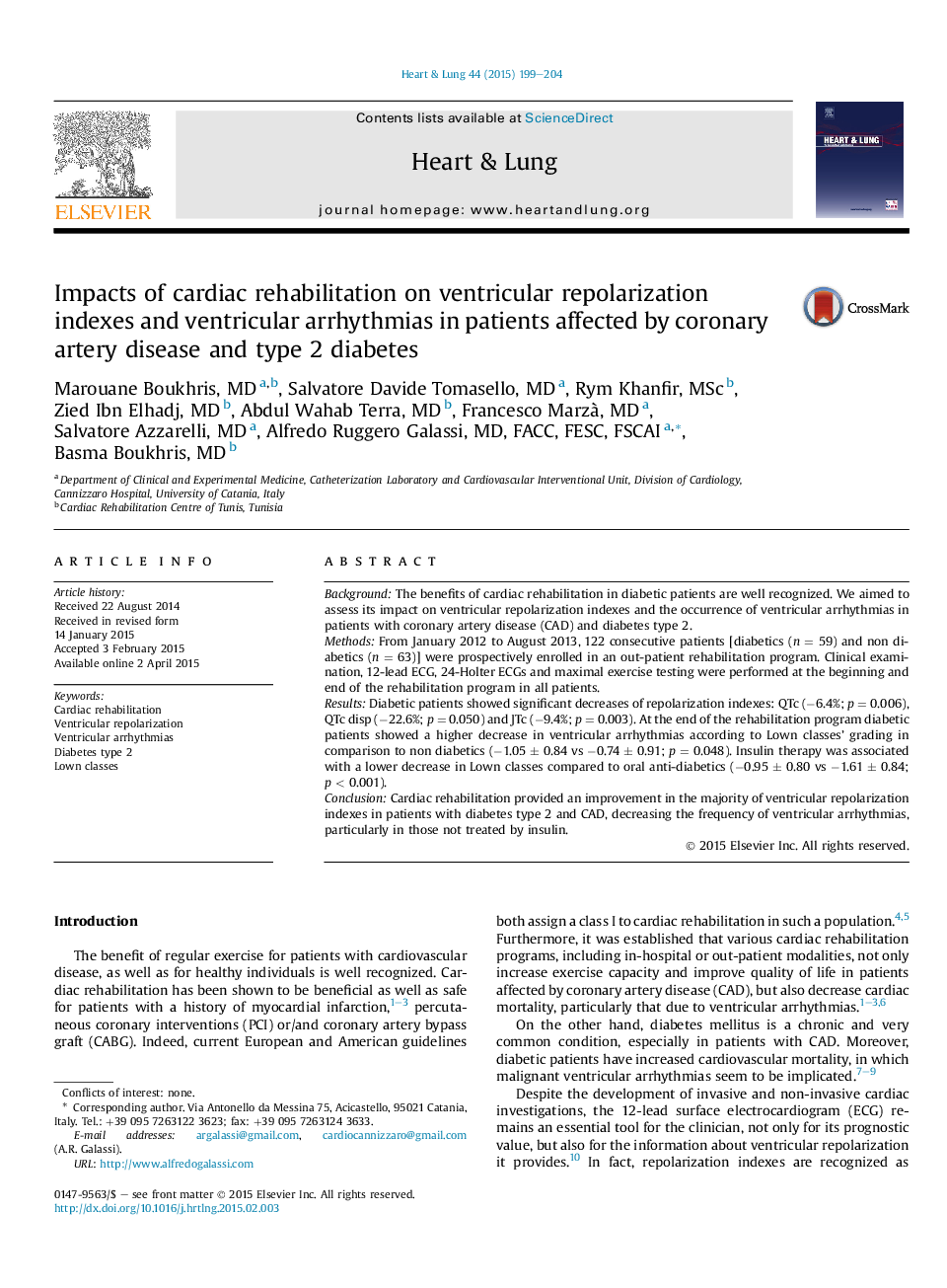| Article ID | Journal | Published Year | Pages | File Type |
|---|---|---|---|---|
| 2650386 | Heart & Lung: The Journal of Acute and Critical Care | 2015 | 6 Pages |
BackgroundThe benefits of cardiac rehabilitation in diabetic patients are well recognized. We aimed to assess its impact on ventricular repolarization indexes and the occurrence of ventricular arrhythmias in patients with coronary artery disease (CAD) and diabetes type 2.MethodsFrom January 2012 to August 2013, 122 consecutive patients [diabetics (n = 59) and non diabetics (n = 63)] were prospectively enrolled in an out-patient rehabilitation program. Clinical examination, 12-lead ECG, 24-Holter ECGs and maximal exercise testing were performed at the beginning and end of the rehabilitation program in all patients.ResultsDiabetic patients showed significant decreases of repolarization indexes: QTc (−6.4%; p = 0.006), QTc disp (−22.6%; p = 0.050) and JTc (−9.4%; p = 0.003). At the end of the rehabilitation program diabetic patients showed a higher decrease in ventricular arrhythmias according to Lown classes' grading in comparison to non diabetics (−1.05 ± 0.84 vs −0.74 ± 0.91; p = 0.048). Insulin therapy was associated with a lower decrease in Lown classes compared to oral anti-diabetics (−0.95 ± 0.80 vs −1.61 ± 0.84; p < 0.001).ConclusionCardiac rehabilitation provided an improvement in the majority of ventricular repolarization indexes in patients with diabetes type 2 and CAD, decreasing the frequency of ventricular arrhythmias, particularly in those not treated by insulin.
